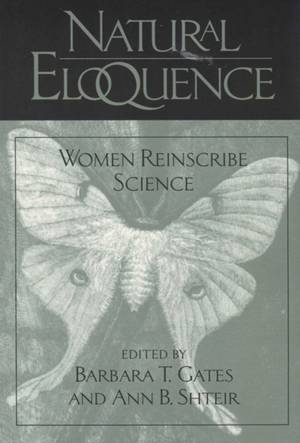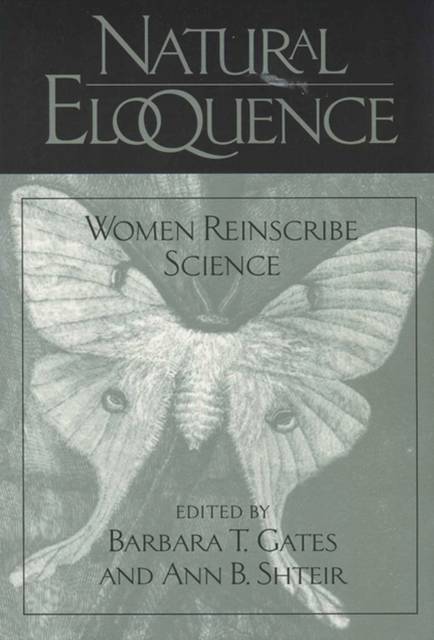
- Afhalen na 1 uur in een winkel met voorraad
- Gratis thuislevering in België vanaf € 30
- Ruim aanbod met 7 miljoen producten
- Afhalen na 1 uur in een winkel met voorraad
- Gratis thuislevering in België vanaf € 30
- Ruim aanbod met 7 miljoen producten
Zoeken
€ 20,45
+ 40 punten
Omschrijving
Women have long participated in the dissemination of science, a part of the history of science that until recently has been undervalued and little explored. By practicing the arts of science writing, lecturing, and scientific illustration, women popularizers of science have played a significant role in creating scientific culture. Natural Eloquence, a collection of essays examining the work of both lesser-known women of science from the nineteenth century and such prominent twentieth-century figures as Rachel Carson, Dian Fossey, and Diane Ackerman, raises thoughtful questions about marginalization, popularization, and originality.
Illuminating many facets of women's science writing in the English-speaking world, some essays show how women pioneered in describing the natural histories of Canada, Australia, and the United States. Other essays look at the ways British and American science writers positioned themselves to address audiences of women, children, and the working class. Women also established literary traditions in science, tested the limits of established scientific writing, provided alternate visions of science (including critiques of Darwin's theories of sexual selection), and fashioned new representations of self and nature.
Illuminating many facets of women's science writing in the English-speaking world, some essays show how women pioneered in describing the natural histories of Canada, Australia, and the United States. Other essays look at the ways British and American science writers positioned themselves to address audiences of women, children, and the working class. Women also established literary traditions in science, tested the limits of established scientific writing, provided alternate visions of science (including critiques of Darwin's theories of sexual selection), and fashioned new representations of self and nature.
Specificaties
Betrokkenen
- Auteur(s):
- Uitgeverij:
Inhoud
- Aantal bladzijden:
- 256
- Taal:
- Engels
- Reeks:
Eigenschappen
- Productcode (EAN):
- 9780299154844
- Verschijningsdatum:
- 15/04/1997
- Uitvoering:
- Paperback
- Formaat:
- Trade paperback (VS)
- Afmetingen:
- 154 mm x 229 mm
- Gewicht:
- 362 g

Alleen bij Standaard Boekhandel
+ 40 punten op je klantenkaart van Standaard Boekhandel
Beoordelingen
We publiceren alleen reviews die voldoen aan de voorwaarden voor reviews. Bekijk onze voorwaarden voor reviews.







